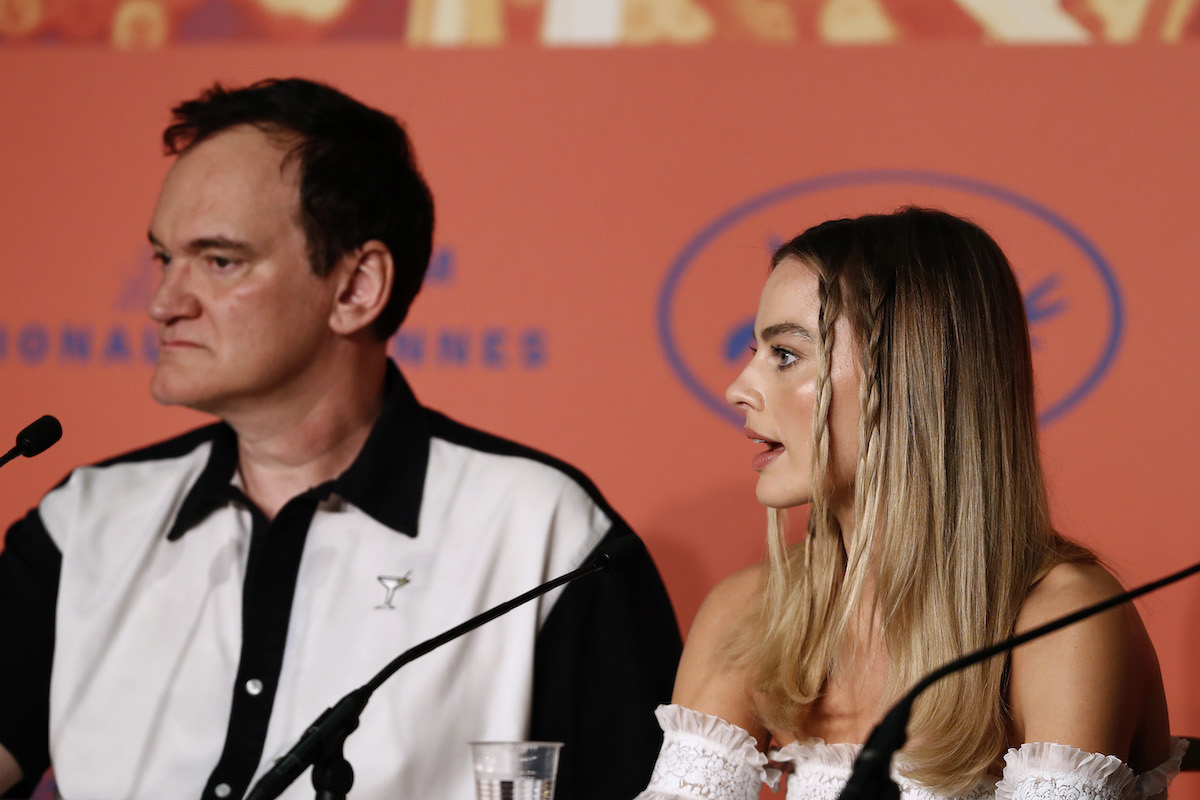When Quentin Tarantino’s Once Upon a Time in Hollywood was announced, the first thing we learned was that, in this movie about the Manson Family murders, “one of the stories centers on Sharon Tate,” the actress and wife of director Roman Polanski who was murdered by Manson’s followers in her home in 1969. That was the first detail we were given, and since Tate or any of the victims are rarely centered in any Manson murders story, this was exciting news, and the film began generally being referred to as “Tarantino’s Sharon Tate movie” or “the Sharon Tate Manson movie.” So it was surprising when Margot Robbie, who was later cast as Tate, wasn’t included in the first official poster for the film. (She did get her own poster shortly thereafter.)
The film premiered at Cannes yesterday, and from the sound of it, it isn’t centered on Tate at all. To be clear, I haven’t seen the movie yet, so all I know is what Tarantino said himself in a press conference today. And what he said was … not great.
During the conference, a female reporter asked Tarantino why he made the decision to give so little dialogue to Robbie’s Tate. Tarantino, who was visibly annoyed with the question, simply said curtly, “I reject your hypothesis.”
That’s it. That’s his entire answer. I’m not sure what part of the question was supposed to be a “hypothesis”—does Robbie not have as little dialogue as the reporter suggested? And why can’t Tarantino say more than four words about his decision to center Brad Pitt and Leonardo DiCaprio’s characters (as early reviews indicate) instead of Sharon Tate? A few critics have actually praised Robbie’s role on Twitter, so why treat the question so antagonistically?
ONCE UPON A TIME IN HOLLYWOOD: Why is no one tweeting about Margot Robbie? She’s the heart and soul of this film. Her Sharon Tate is the most humane and resonant character of the entire movie. Almost every scene she’s in is heartbreaking to watch. #Cannes2019
— Jordan Ruimy @ Cannes (@mrRuimy) May 21, 2019
Robbie herself stepped in to answer the question more tactfully, saying, “I think the moments that I got onscreen gave an opportunity to honor Sharon and her lightness. I don’t think it was intended to delve deeper. As Brad mentioned, I think the tragedy was ultimately the loss of innocence and to show those wonderful sides of her could be done quickly without speaking, and I did feel like I had a lot of time to explore the character event without dialogue.”
The quote from Brad Pitt that Robbie mentioned there came when Tarantino refused to answer another question about women in his movie. According to The Hollywood Reporter, he was asked about the scenes that depict “rage against women,” but he dodged the question, citing spoilers.
Again, one of the actors had to try to answer the question for Tarantino, and Brad Pitt said that he didn’t see the violence as so much as “a rage against individuals, but a rage against a loss of innocence.”
Sure, the Manson murders were about a lot of things, including racism and classism and maybe even *rolls eyes* a “loss of innocence,” but they were also absolutely about a misogynistic rage against women. Again, those of us not at Cannes will have to wait to see if Tarantino was able to give due weight, within the movie itself, to the role of misogyny and the specific terrors faced by women in Manson’s orbit, but his words around the movie sure don’t give us much hope that’ll be the case.
(image: John Phillips/Getty Images)
Want more stories like this? Become a subscriber and support the site!
—The Mary Sue has a strict comment policy that forbids, but is not limited to, personal insults toward anyone, hate speech, and trolling.—










Published: May 22, 2019 12:59 pm